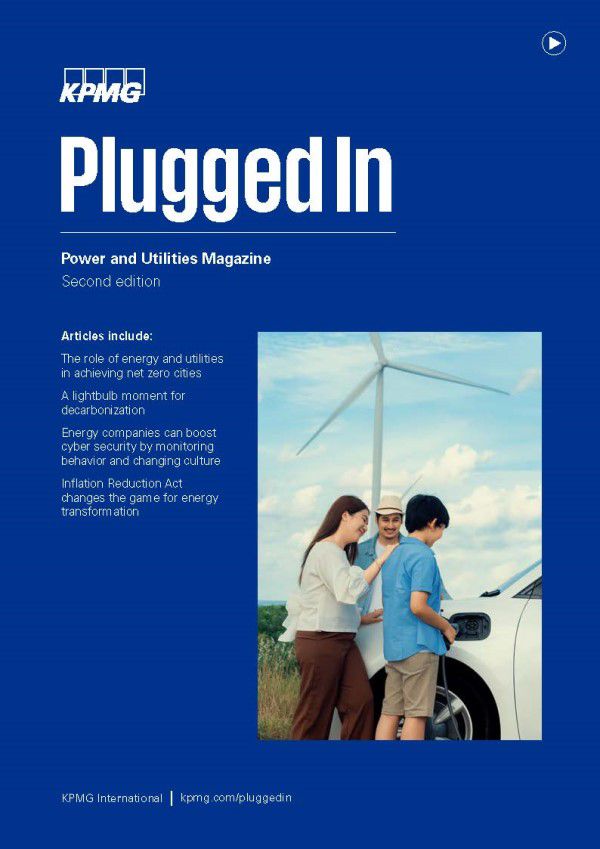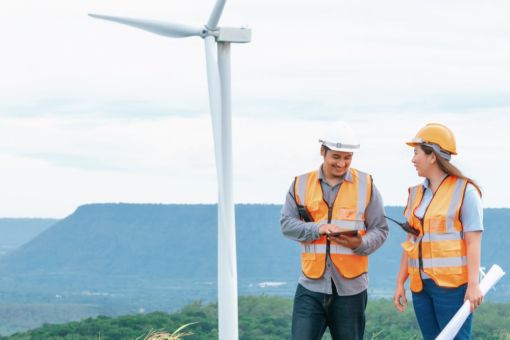Almost three quarters of global greenhouse gas emissions are attributed to energy consumption, including electricity, heating, and transportation.1 The role of energy organizations in combating climate change and implementing decarbonization is growing. Through their work, they can help organizations and communities achieve net zero emissions and decarbonize their operations.
For the energy sector to become net zero by 2050, US$3.5 trillion in additional capital expenditures will be required.2 During this transition, energy companies will likely add new fuel sources to their energy mix, build new grid infrastructure, and implement energy storage systems to accommodate intermittent renewable sources. Additionally, they should become involved in energy efficiency and demand-side management initiatives for their customers.
The second edition of Plugged In Magazine examines a variety of ways in which energy companies can participate in efforts to slow climate change. This can include decarbonizing their assets and extending this to their customers and society at large, such as investing in new energy technologies and working with companies and communities that have set ambitious carbon reduction targets.
Explore the articles
KPMG Climate Change and Decarbonization Center
One of the most significant risks of our lifetime is climate change, which requires our utmost attention and immediate action. Taking climate goals into account means reducing risks and seizing opportunities to be at the forefront of the transformation to a net-zero world and achieving those goals.
The KPMG Global Climate and Decarbonization Center was established to provide leading climate strategies and advice to member firm clients. We are not simply consultants. To achieve a low-carbon future, KPMG professionals are committed to working collaboratively with clients.
KPMG firms’ climate risk and decarbonization specialists can assist you in achieving your climate goals by providing:
Climate policy and incentives advisory
KPMG professionals can assist your business in understanding the evolving climate policy landscape, including incentive measures and the risks and opportunities associated with such changes.
Decarbonization pathways to net zero
From emissions measurement to implementation, monitoring, and reporting, we can assist you with gaining strategic foresight and operational value during your decarbonization journey. Several options are available to support these activities, including renewable energy procurement, energy efficiency, circular economies, and supply chain management.
Climate risk
We work with clients to identify physical and transition risks based on different scenarios.
Low carbon financing and investment opportunities
We advise clients on the financial and investment aspects of the low carbon agenda, which include raising funds and identifying investment partners and merger and acquisition opportunities.
Contact us

Global Energy Institute
Receive valuable insights covering critical energy topics.

Follow us on LinkedIn
View regular energy content on our LinkedIn showcase page

Plugged In
The role of energy organizations in combating climate change
Download magazine (2.46 MB) ⤓
Explore Energy Insights
1 Climate Watch, Historical GHG Emissions
2 World Economic Forum, What’s the price of a green economy? An extra $3.5 trillion a year, January 2022.








